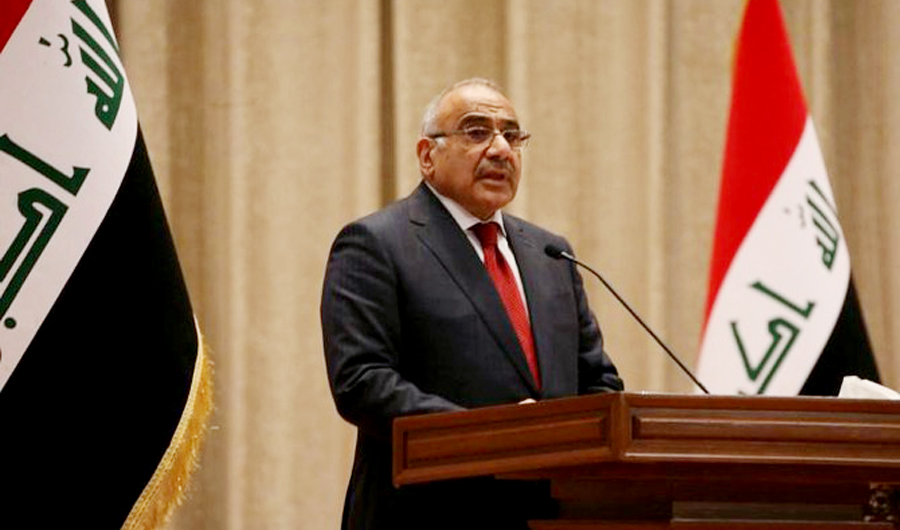With Netanyahu’s help, ‘racist’ aide could become MP
HEBRON: The bespectacled man was given a hero’s welcome when he arrived for the party on the recent Jewish holiday of Purim, with teenagers singing and applauding around him.
Itamar Ben-Gvir was on the streets of Hebron, a flashpoint city in the occupied West Bank, among Israeli settlers reveling while disguised and masked according to Jewish tradition.
The support for him there was a sign of why he may soon become a member of Israel’s Parliament as part of an extreme-right party many view as racist — helped along by a deal brokered by Prime Minister Benjamin Netanyahu.
“No way — there’s no way that they’re racist,” said Yehudit Katz, a resident of another West Bank settlement who came to celebrate for Purim in Hebron.
Several hundred Israeli settlers live in Hebron under heavy military guard — including Ben-Gvir — amidst around 200,000 Palestinians.
 “The solution that they have is to keep the people that are not Jewish — the Arabs, whoever — that are loyal to the state of Israel as a Jewish homeland, and there are many Arabs like that,” said Katz.
“The solution that they have is to keep the people that are not Jewish — the Arabs, whoever — that are loyal to the state of Israel as a Jewish homeland, and there are many Arabs like that,” said Katz.
“We don’t want terrorists. Terrorists can go live somewhere else,” he added.
Ben-Gvir, a 42-year-old lawyer, said “God willing” Jewish Power will make it into Parliament.
It is a prospect that has touched off one of the most intense debates in the campaign ahead of April 9 elections.
Jewish Power’s leaders are followers of an assassinated racist rabbi whose group was labeled a terrorist organization by the US, the EU and Israel itself.
Netanyahu’s deal that saw Jewish Power join two other far-right parties to run on the same electoral list drew disgust at home and among Jewish communities abroad, particularly in the US.
For Netanyahu, the deal ahead of what is expected to be a close election was pure politics.
He defended it by saying he does not want any right-wing votes to go to waste as he eyes his next coalition.
Running alone, Jewish Power was unlikely to pass the 3.25 percent electoral threshold.
But all has not gone smoothly for Jewish Power, whose leader Michael Ben-Ari was also running but has been disqualified by the Supreme Court for statements it ruled were an incitement to racism.
Ben-Gvir’s candidacy was also challenged at the court, but he was allowed to stand, making him the only Jewish Power representative with a chance to make it into Parliament. Jewish Power are followers of late racist rabbi Meir Kahane, whose Kach movement wanted to chase Arabs from Israel.
The ideology of Kahane, assassinated in New York in 1990, also inspired Baruch Goldstein, who carried out a massacre of 29 Palestinian worshippers in Hebron in 1994.
Ben-Gvir acknowledges having a picture of Goldstein in his living room, but has reportedly said it is because he was a medical doctor who rescued Jews targeted in Palestinian attacks.
For Adalah, a rights group for Arab Israelis, Ben-Gvir belongs to a “racist movement recognized as a terrorist organization.”
Jewish Power strongly disputes the characterization, with Ben-Gvir telling the Supreme Court it is only against “enemies of Israel” and not Arabs in general.
Opinion polls show the list that Jewish Power is part of winning between five and seven seats in the 120-seat Parliament.
Ben-Gvir is seventh on the list.
Jewish Power advocates removing “Israel’s enemies from our land,” a reference to Palestinians and Arab Israelis who carry out attacks or who they see as not accepting the Jewish state they envision.
It also calls for Israel annexing the West Bank, where more than 2.5 million Palestinians live.
Ben-Ari was previously a member of Parliament as part of a different right-wing list between 2009 and 2013, but Jewish Power has never passed the electoral threshold.
Ben-Gvir has long been an outspoken member of the far-right.
Indicted 53 times since his youth, he boasts of having been cleared in 46 cases. He decided to study law on the recommendation of judges so he could defend himself.
He defends settlers accused of violence, including those allegedly responsible for an arson attack that killed an 18-month-old boy and his parents in 2015 in the West Bank, an incident that drew widespread revulsion.
In 1995, when only 19 and in a time of turmoil following the Oslo accords with the Palestinians, he appeared on television with what he said was the stolen emblem from then prime minister Yitzhak Rabin’s Cadillac.
Rabin was assassinated by an Israeli opposed to the Oslo accords later that year.
“We got to this symbol. We’ll get to him,” Ben-Gvir said at the time.

Netanyahu lands in Moscow for pre-election Putin meetingTwitter says action taken against Netanyahu bot network



